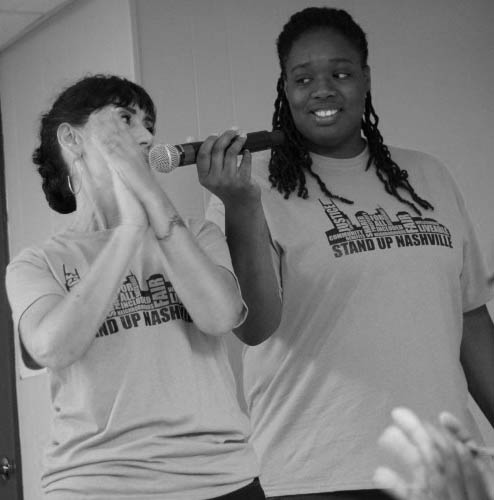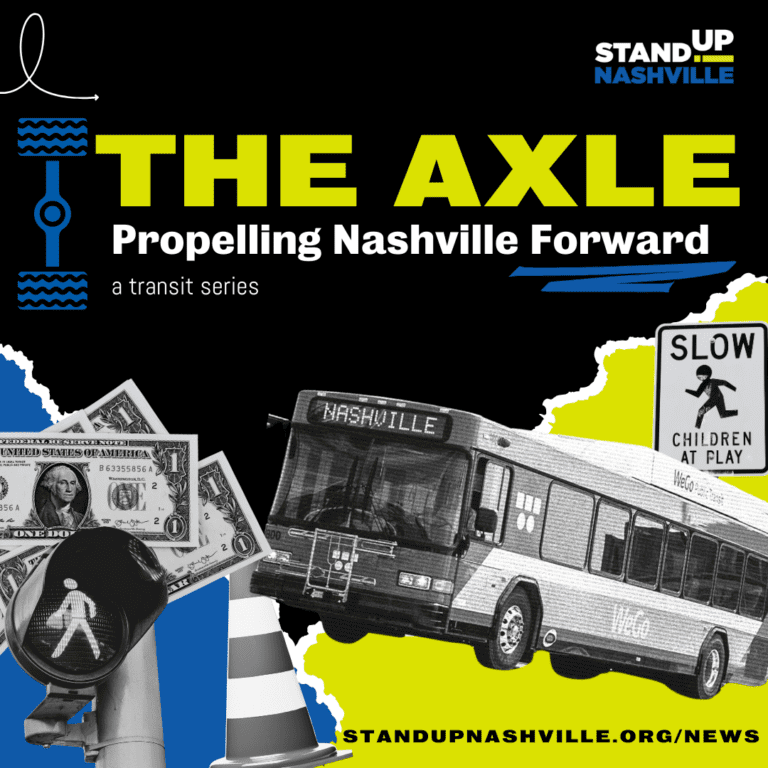Bill before Metro is potential game changer for economic development
Almost two years ago, I had to meet with a parent of two of the kids who attend the after school program at Napier Community Center; she wanted permission for her children to stay later because she had just started a job at the Music City Center and her schedule wasn’t flexible at the time. They were paying her a little over 10 dollars an hour and giving her more than 30 hours a week.
Fast forward to this past summer, when this same parent had to take a second job at Amazon’s warehouse in Lebanon because her employment at MCC put her into the income range that cut off her benefits and raised her public housing rent. This woman is a superhero. I have no idea of when she sleeps while raising two amazing kids and trying to better her situation. But there are no realistic solutions to help her break out of the cycle of poverty. She sometimes has to supplement her pantry with an emergency food box. No person working two jobs should have that issue, yet I see it every day. Most people who enter Napier Community Center to receive a box of food are not homeless, nor unemployed. They are truly the working-class community of Nashville.
It doesn’t take a PhD in economics to understand that the “It City” boom hasn’t created opportunities for all Nashvillians. Just ride through J.C. Napier Homes. You’ll see that in spite of unprecedented growth, working-class communities of color have yet to prosper from it.
Data from the most recent Community Needs Evaluation drives the point home. In 2015, per capita income was $37,706 for Davidson County’s white population, $19,920 for the African American population, and $13,274 for the Hispanic or Latino population.
If we want to make Nashville a place where everyone has full opportunity, then we have to change the way we do business as a city. We must ask, who are we really developing for? City officials and boosters have relied on incentive packages such as cash grants and property tax breaks, known as payments in lieu of taxes or PILOTs, to entice big corporations to relocate or expand operations here.
Up to now, these efforts have not changed the reality for tens of thousands of hard-working Nashvillians and their families who can’t make ends meet. Why? Because they deal with the symptoms rather than the root causes of the problem.
There’s little accountability regarding the number and quality of jobs that these incentives actually create. For example, earlier this year Ryman Hospitality was awarded incentives with an estimated total value of $15 million to build a luxury water park at the Gaylord Opryland Resort that County residents can’t even access unless they stay at the hotel. This deal and even bigger incentive packages for the likes of Bridgestone and HCA Parrallon & SCRI have many people wondering what exactly the community is getting in return. The answer is that we don’t know. We have to do better.
With the introduction of Ordinance BL2017-983, Council Members Anthony Davis, Fabian Bedne, and Erica Gilmore give Metro Council the chance to make economic development in Nashville and Davidson County more equitable, inclusive, and transparent. Aptly called the “Do Better” bill, the proposal takes practical steps toward transforming our city into a place for all of us to fully participate in and contribute to Nashville’s economic development and prosperity.
The bill simply calls for more transparency in the approval process of cash grants and PILOTs through the Industrial Development Board. Currently, these incentives, which need approval by both Metro Council and the IDB, get fast-tracked with inadequate information and scrutiny regarding their costs and benefits.
The “Do Better” Bill gives Metro Council an effective tool to determine whether the common good is served by the incentive under consideration, as well as a way to suspend or end an incentive agreement if the company fails to hold up its side of the bargain. In other words, it would help Metro Council make better business decisions on behalf of all of its constituents, not just big corporations.
This is how the bill would work: any company seeking a cash grant or PILOT through IDB would have to submit a project proposal to the Mayor’s economic development office that states the type and number of jobs that will be created, compensation, and how many positions will be filled by county residents. The proposal will also contain the company’s workforce development plan and recent safety record.
The “Do Better” Bill rests on three core values: open and transparent governance that allows for public debate on critical economic decisions, prioritizing equitable and inclusive economic development for public investment, and creating opportunities for every Davidson County resident to provide for their own basic needs and those of their family.
The current incentive model isn’t fair and doesn’t benefit the whole community. It’s time for our policy to reflect that we’re all in this together. We must do better. This bill is our chance to do exactly that.
Odessa Kelly is the co-chair of Stand Up Nashville, a coalition of community-based organizations and labor unions that represent the working people of Nashville who have seen our city transformed by development, but have not shared in the benefits of that growth. We believe that development and growth are opportunity to invest and strengthen our local communities.







